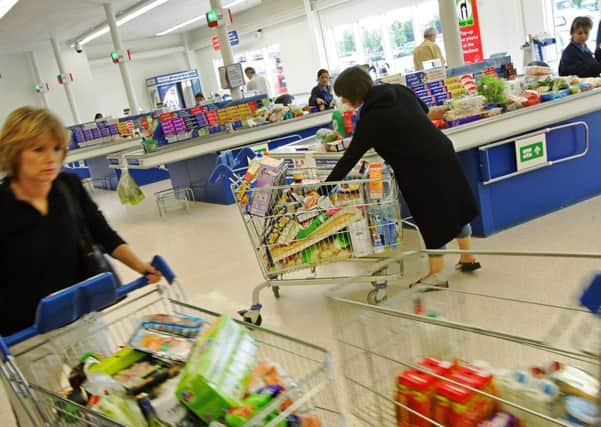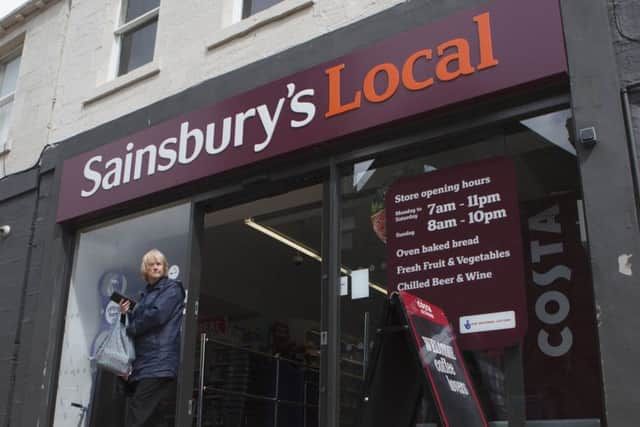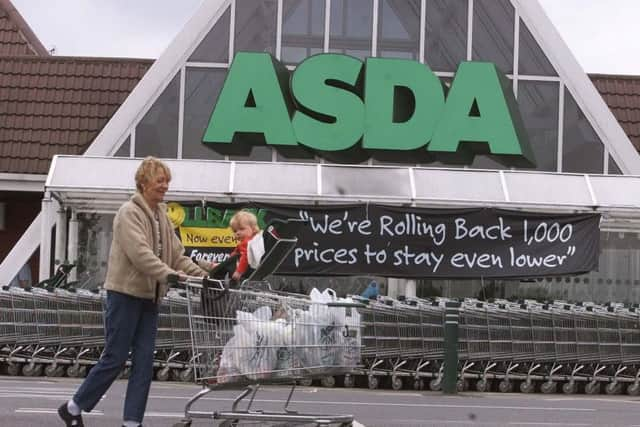Sleeping supermarket giants begin to awaken
This article contains affiliate links. We may earn a small commission on items purchased through this article, but that does not affect our editorial judgement.


But evidence is emerging that the fightback has begun, with the likes of Tesco, Sainsbury’s and Morrisons hitting back with a mixture of operational improvement and imaginative diversification.
Britain’s biggest food retailer Tesco dropped a bombshell a week ago with a £3.7 billion swoop on wholesaling giant Booker to create what they are billing as the country’s “biggest food company”. It takes Tesco, which still has a 28 per cent market share in its core UK business of food retailing, beyond that arena and into Booker’s restaurant and takeaway food sectors.
Advertisement
Hide AdAdvertisement
Hide Ad

In many ways, it mirrors Sainsbury’s major strategic move last year in snapping up catalogue showroom household goods business Argos for £1.4bn. Both mega-deals suggest that Tesco chief executive Dave Lewis and his Sainsbury’s counterpart Mike Coupe see widening their customer propositions as a way of stopping the relentless march of Aldi and Lidl.
One fly in the ointment is that City analysts believe Tesco’s move on Booker will provoke strong regulatory scrutiny because, while Booker is mainly a wholesaler, it also owns the Budgens, Londis and Premier convenience store brands that are arguably direct competitors to the lower end of Tesco’s overall offering. There have been suggestions that Tesco might need to dispose of 600 or so stores to sweeten the regulator on competition issues as those stores are less than 500 metres from Booker’s convenience stores.
However, Lewis could argue to the Competition & Markets Authority that if it didn’t block Sainsbury’s move on Argos why block Tesco’s similar move.


Such diversification is already showing its mettle. Sainsbury’s like-for-like sales edged up 0.1 per cent over the key Christmas trading period and into the New Year, but the performance was far outstripped by the 4 per cent hike in Argos’s sales over the same time. That brings us to another aspect of the fightback the supermarket majors are mounting. After many quarters of same-floorspace declines Morrisons, Tesco and Sainsbury’s have stopped the rot through sharpening up their offer availability and putting hundreds of more staff on the shopfloor to enhance the customer experience.
Morrisons, Scotland’s third-biggest supermarket group, which returned to quarterly like-for-like sales growth earlier in 2016, reported its strongest performance for seven years in the Christmas period, with a near-3 per cent rise in the nine weeks to 11 January. Flexing its muscles, Morrisons also announced a deal with Amazon whereby the US internet food giant will sell hundreds of its products in the stores.
Meanwhile, Tesco was also on the front foot last year, with Lewis selling off a raft of non-core assets including its Korean business Homeplus for £4bn, and, on a lesser level, distractions such as Giraffe restaurants and Dobbies Garden Centres.


Over the recent festive period Tesco grew its UK market share for the first time in seven years as it unveiled a 0.7 per cent increase in like-for-like sales, with a strong demand for its fresh food. The company also notched up a 1.8 per cent jump in the longer third-quarter period, the profits warnings and accounting scandal associated with Lewis’s predecessor Phil Clarke looking increasingly historical headwinds.
Advertisement
Hide AdAdvertisement
Hide AdOf course, this is only a nascent recovery by the doyens of the UK supermarket sector. Aldi and Lidl are still expanding storespace, opening scores of outlets both north and south of the Border, and taking on hundreds of staff. Jointly, the German discounters still have a market share of just under 11 per cent or so. Their stripped-down overheads are less than the big incumbents, and they continue to plug into the austerity era zeitgeist.
However, a rebound has to start somewhere, and on both sales and lateral strategic thinking the Big Four have shown they are now up for the match. Strikingly, one of the majors is currently clearly not part of the bounceback: Asda. Its chief executive Andy Clarke was outsted last summer after a 7.5 per cent slump in its sales in the three months to June – the worst performance in its history. Clarke’s successor, Sean Clarke, is still trying to staunch the haemorrhaging, but in the three months to September Asda’s same-floorspace sales slid another 5.8 per cent.
One analyst said: “Asda stands out as the one major currently that is not reversing some of the inroads of the discounters. It is flailing.”
